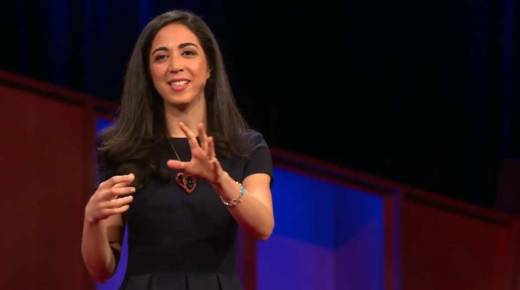When Emily Esfahani Smith went to college and embarked on her adult life she thought the key to a happy life was success. She was looking for the perfect job, boyfriend and apartment. But the longer she chased the things she thought would make her happy, the more anxious and adrift she felt. So she decided to go to graduate school to study positive psychology and figure out once and for all what makes people happy. But what she learned was that many people feel hopeless, depressed and alone.
"There's an emptiness gnawing away at people and you don't have to be clinically depressed to feel it," Esfahani Smith said in a TED talk.
And the research shows that what predicts this despair is not a lack of happiness, it's a lack of having meaning in life. Psychologists often define happiness as feeling good in the present moment, whereas meaning gets at something deeper. The psychologist Martin Seligman said meaning comes from belonging to and serving something beyond yourself, and from developing something within you.
Esfahani Smith spent five years reading the research in neuroscience, psychology, philosophy, and interviewing hundreds of people to try to figure out how we can each lead more meaningful lives. She says meaning can be created by focusing on four pillars, although they don't all have to be present for every person.
1. Belonging. "Belonging comes from being in relationships where you are valued for who you are intrinsically and where you value others as well," Esfahani Smith said. She cautions the "cheap" type of belonging that revolves around being valued for what you believe or who you hate, and that real belonging comes from love. She also says belonging is a choice; people can cultivate belonging in a community.


